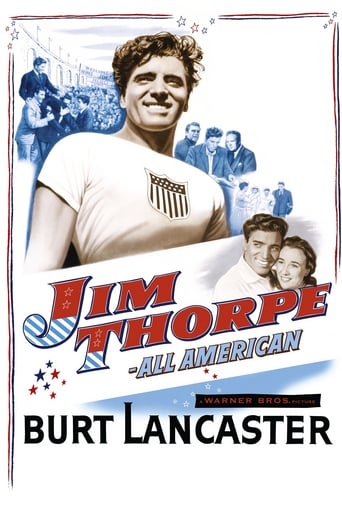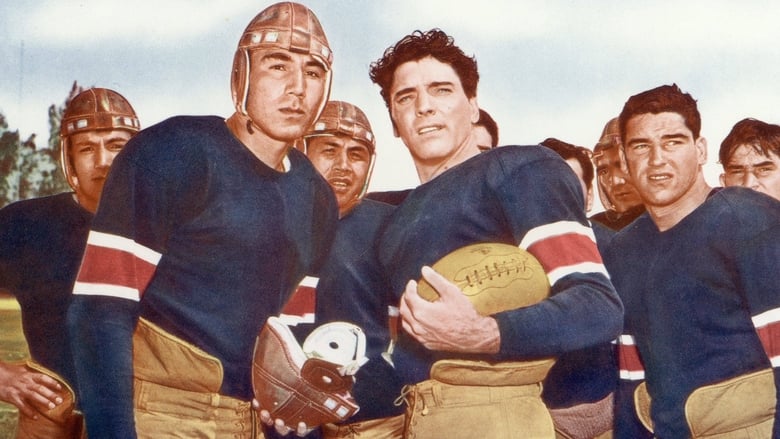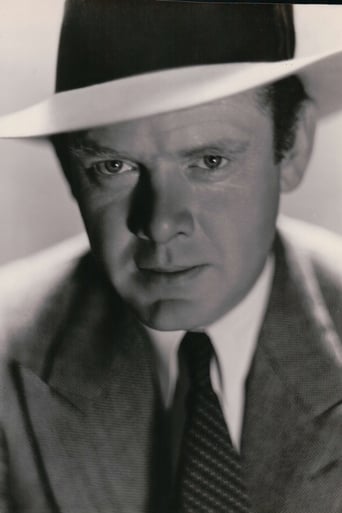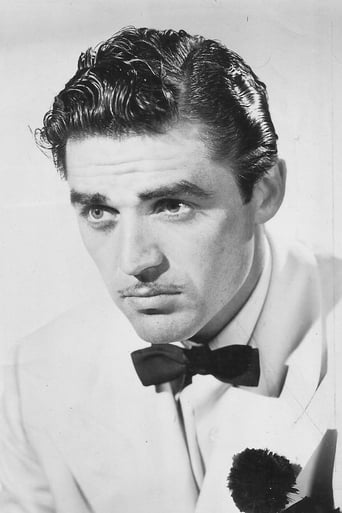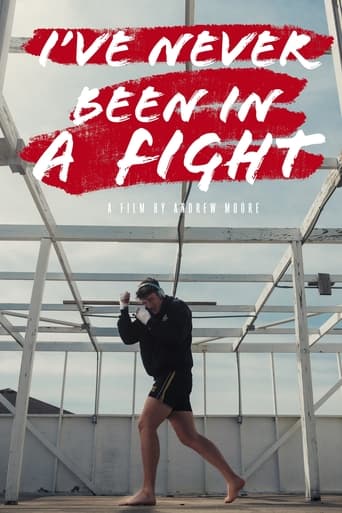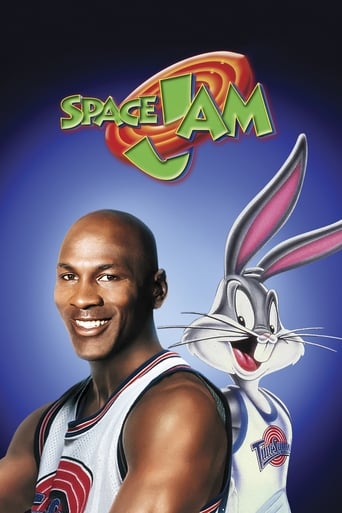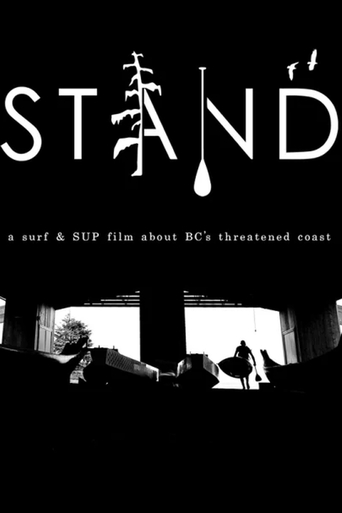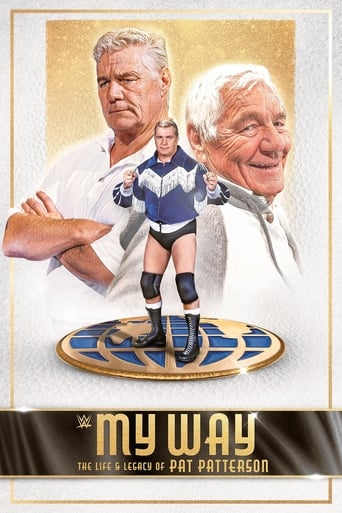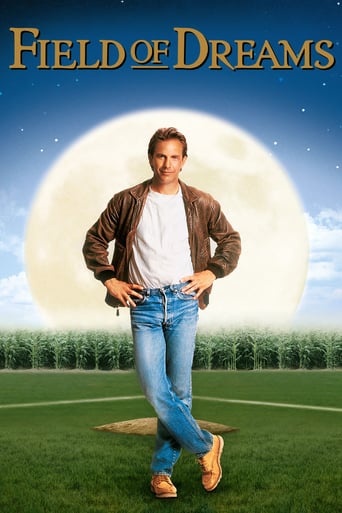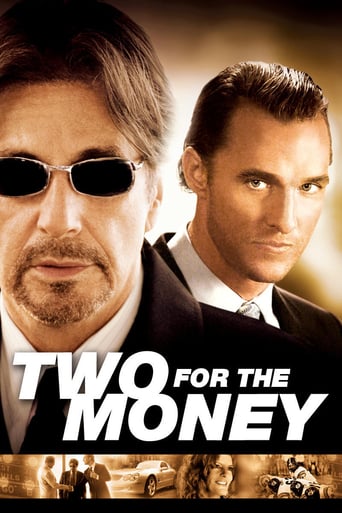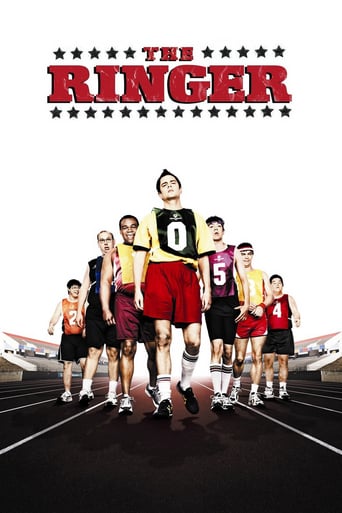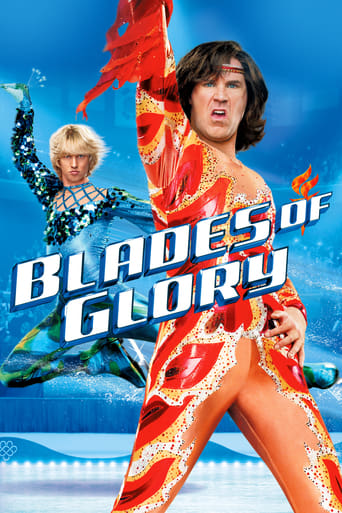Jim Thorpe – All-American (1951)
The triumph and tragedy of Native American Jim Thorpe, who, after winning both the pentathlon and decathlon in the same Olympics, is stripped of his medals on a technicality.
Watch Trailer
Cast


Similar titles
Reviews
Sick Product of a Sick System
One of my all time favorites.
If you don't like this, we can't be friends.
This is a coming of age storyline that you've seen in one form or another for decades. It takes a truly unique voice to make yet another one worth watching.
As a self-confessed sports junkie, I enjoy sports films. To me authenticity is a vital component in sports movies, particularly when a film involves an individual of Jim Thorpe's stature. I don't think that it's sufficient, or worthy, to merely issue a general disclaimer professing that characters and events may be different than those portrayed in the film. It's my belief that the true greatness of a person's accomplishments are obscured when accuracy is not maintained. Thorpe's football accomplishments at Carlisle Indian Industrial School are legendary. A number of sequences in the movie deviate a bit from events that actually transpired. The movie chronicles a big game in the 1908 season between Carlisle and Penn. While it is accurate that Carlisle played Penn that season, the actual score was a 6-6 tie not the 13-13 tie asserted in the movie. In the film, Thorpe kicks a 50 yard field goal with 25 seconds remaining to tie the score. In actuality, Thorpe missed three field goals that day. The film contrives a rivalry between Penn's Tom Ashenbrunner and Thorpe. Problem is that there was no Ashenbrunner that played for Penn. In actuality, the Penn running back (star) was All-American Bill Hollenback. He was the Penn player who faced Thorpe that fateful October afternoon in 1908. In real life, Thorpe claimed that Hollenback was his toughest and fiercest rival. Pop Warner, Carlisle's coach, advises Thorpe that Allegheny College is searching for a coach, and that the school has narrowed the search to Ashenbrunner and Thorpe. Presumably, how they perform in the big game will determine who gets the Allegheny coaching gig. In reality, Bill Hollenback was hired by Penn State in 1909 to coach their team, not Allegheny. In retrospect, one must wonder if permission was denied by Hollenback to use his actual name in the film. Given the crowd shots, it could be implied that the Penn game was (seemingly) played at Carlisle and not Franklin Field. That implication is simply inaccurate. Carlisle routinely played road games against smaller, closer opponents (e.g. Muhlenberg College). Do any of these inconsistencies diminish Thorpe's achievements? I would claim they don't, but they certainly test the veracity of the film. If Ashenbrunner is fictitious, did Jim Thorpe actually set a particular record or complete in a certain Olympic event? As correctly indicated by various reviewers, Jim Thorpe was married three times, but only one wife is depicted in the film. The one son that we are introduced to in the movie, who tragically passes away, was actually one of eight children fathered by Thorpe and his three wives. Of course liberties must be taken so that a storyline has continuity and the audience is engaged. But omitting and altering facts is very disconcerting. Instinctively, I enjoyed Jim Thorpe All American. It's a likeable movie about an American hero. Burt Lancaster is a great actor, and his portrayal of Jim Thorpe is captivating. And Charles Bickford is a terrific coach/mentor Glenn S. "Pop" Warner. However, no matter how good Lancaster acted in his role of Thorpe, there will always be incessant issue of authenticity. That persistent foible of integrity was never overcome in this classic film.
What do you want out of this film? This is the question you have to ask before you can discuss how good a film it is.If you want biographical accuracy, you might better read Wikipedia. For example, in the film Thorpe had 1 wife and 1 son; in reality he had 3 wives and 8 children. In the film he pulled himself up by the bootstraps after his fall from stardom; in reality, after his fall from grave he took jobs such as construction worker, doorman, bouncer, and ditch digger; he also joined the U.S. Merchant Marines and was a chronic alcoholic late in life...none of which is mentioned in the film. When being treated for skin caner in the 1950s he was admitted to a hospital as a charity case.On the other hand, if you want to watch a well-made relatively fictitious biopic that is quite entertaining, step right up. In that respect, it's a very good film.And, if you want to see Burt Lancaster is a great performance, also, step right up. He's terrific and does much of his own sports work here. And I give that praise for an actor I was never really very enamored with.Other primary actors here include Billy Gray ("Father Knows Best", Bud) as the young boy Jim Thorpe, Charles Bickford as "Pop" Warner (a fine performance as Thorpe's mentor), and Phyllis Thaxter as his only wife in the film.It would be interesting to see this film remade in today's political climate. How would a filmmaker today treat the Carlisle Indian School, for example? While this is an absorbing film, I walked away from it not impressed with the totality Jim Thorpe the man...even without all the failure that accompanied his later years.
The movie itself isn't outstanding in any way. Michael Curtiz, the director, keeps the bodies in motion and wastes no time on pretentious touches. Burt Lancaster is solid without rising above the rather banal script, in which Jim Thorpe, a Sac and Fox Indian, starts out an impoverished kid on the reservation, rises to athletic stardom at Carlisle Indian School, goes on to win a bunch of hard-earned medals at the 1912 Olympics (in which George C. Patton was a member of the boxing team), marries the girl he's always loved, has a child on whom he dotes as the reincarnation of his self, and then -- one by one -- loses it all.One can hardly blame him for his downward slide. His Olympic (or Olympian) feats are nullified because he played baseball for money during a summer vacation from Carlisle. Along with them goes the coaching job he's been hoping for. His beloved son dies later. His bitterness drives away his wife -- for good. He soldiers on, playing professional football, but for less prestigious teams and lower salaries. Like the rest of us, as he grows older he loses his stamina until he can't find any work in sports. He plays host at a marathon dance in the 1930s dressed as a cigar-store Indian. He alienates his few remaining friends, including his college coach, Pop Warner (Charles Bickford), who gave him his start.Finally, he drives a truck over a football belonging to a gang of kids, gives them a new football and teaches them the elements of the sport. "Gee, thanks, Coach," says one of the kids. A broad smile spreads across Lancaster's face when he's so addressed and he -- in the words of Pop Warner -- "finds himself." The final scene has him being honored at a vast reception, looking gray at the temples, neatly dressed, grateful and distinguished. The applause deafens the listener.It's something of a cop out, that ending. Not just because the real Thorpe never managed to climb out of one of the lower socioeconomic classes, but because it panders to an audience that wants a typical Hollywood happy ending, or at least an ending ambiguous enough to suggest ultimate redemption, like "Young Man With a Horn," about a Bix Beiderbeck character. Hardly any mention is made of alcohol.The ending makes no sense. How does an individual "find himself." What does it MEAN? It's like saying that someone "got in touch with his feelings." And after having been a winner in grueling competitions like the Pentathlon and the Decathlon and having become world famous, meeting with the King of Sweden, and relishing it, are you really saved if a handful of raggedy slum kids call you "Coach" and run away after you kick their new football in their direction? Thorpe became a big, shambling wreck and picked up a few bit parts in Hollywood movies. If you want to see what he was like in the late 1940s, watch the scene in John Ford's "Wagonmaster" in which the LDS members dance in a circle with the Indians, and Ward Bond looks up with awe at the giant next to him.The soft landing notwithstanding, it's an exciting movie, and an exhilarating one. Great to see Burt Lancaster in the track and field events. (He didn't play football and wasn't much at baseball.) Lancaster was as fit as a fiddle. He kept himself in shape through regular exercise and practice. He never lifted weights so he was sinuous rather than muscle-bound like some screen narcissists.Being a hero is a tough row to hoe, or at least I would imagine. Not only is it tough being an athlete, but it raises the question of what you do for an encore. Like ex-presidents, ex-athletes must have a difficult time dealing with the discrepancy between what they once were and what they now are. Perhaps wisely, this movie focuses mainly on what Jim Thorpe was, and gives us a foolish ending so that we can walk away from the film feeling all warm inside. To treat Thorpe's later career seriously would involve a very different kind of movie.
I was 11 years old when saw this movie in India. I was absorbed and fascinated by the story and the sincerity of performance by Burt Lancaster. The movie gave a great boost to my interest in sports and helped make me work harder at track and field sports. I fell in love with Phyllis Thaxter because she is so beautiful. It was sad to see Burt portray the elderly but dignified Thorpe. I intend to make a visit to Jim Thorpe, PA and the Carlisle Indian School. They are just a few hours drive away from where I now live. It was clear from Burt's performance that he had great respect for the Native American and fully succeeded in bringing dignity and glory to Thorpe and his native ancestors. It was refreshing to see that the modern version of the proverbial "noble savage" was really noble and savage has no place in the description of the American Indian. It was an unforgivable affront to Thorpe, his family and his people for the International Olympic Commission to wrongly strip him of his medals only to return them posthumously to his family. Viswanathan

